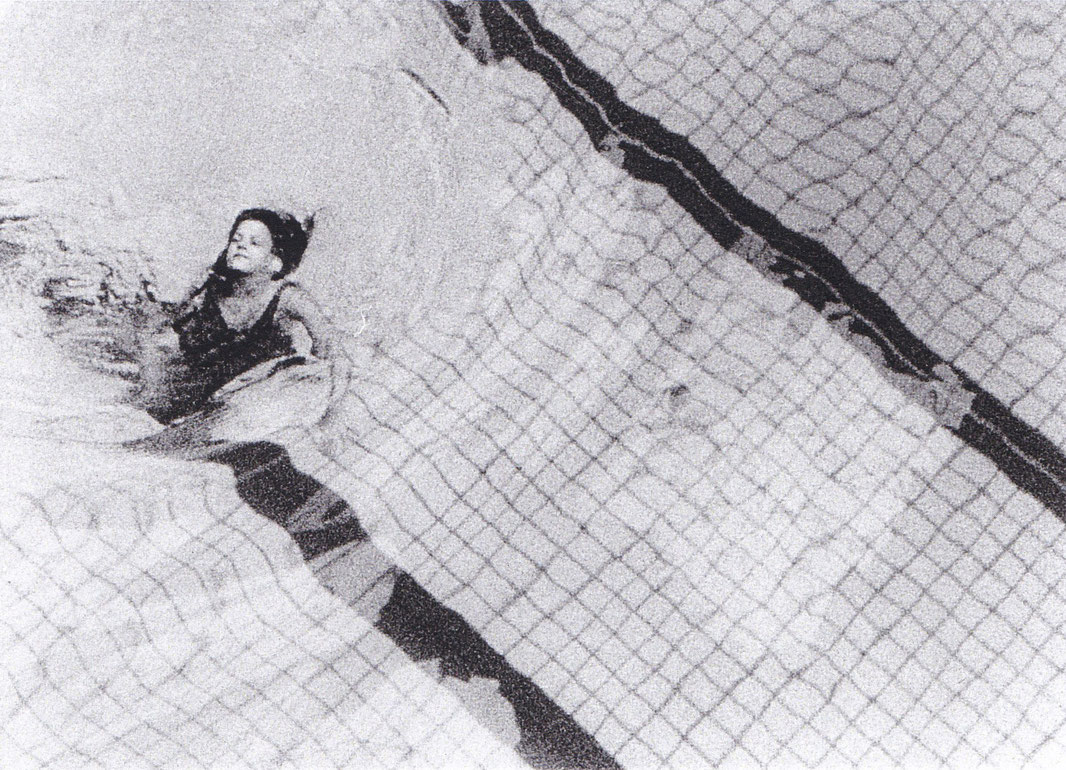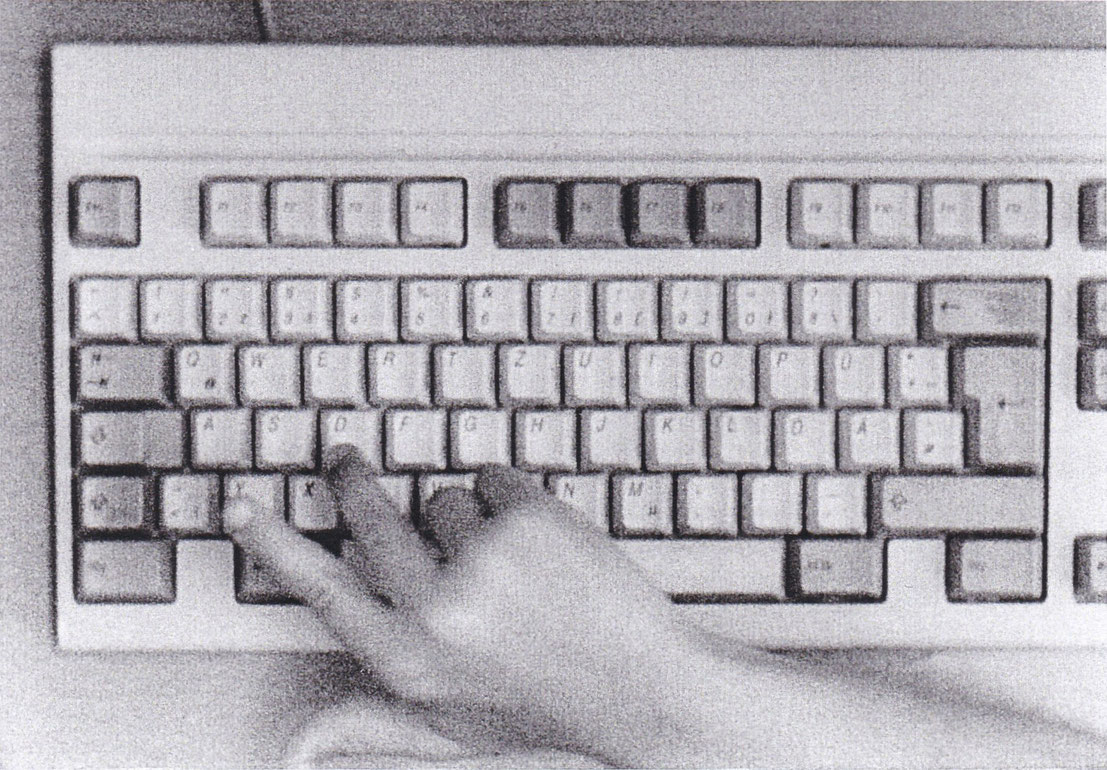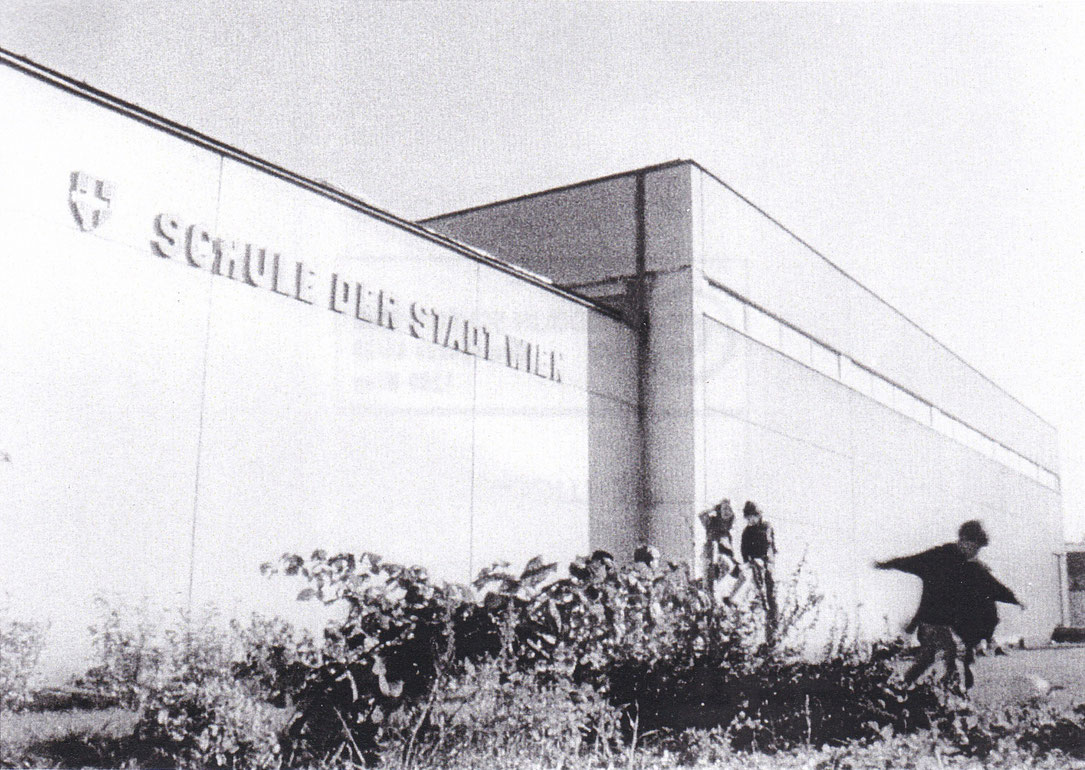it works
Four handicapped children of ten, four film documents about work processes.
In both a visual and acoustic sense the camera is focused on feats of strength.
Each of the children accomplishes something which, for them, is a critical achievement.
it works: it can be managed, it's happening, it functions, it's taking place.
Gerald writes letters, syllables and words on the computer. Finally he writes the sentence "The ship sailes over the sea". Something which is taken for granted, a hand on a keyboard, is experienced as a challenge.
Lilian does the crawl, dives and swims, her whole body swings, rhythmically compensating for a "missing"? limb.
Valentin is listening to music. His whole body is the equivalent of a sensitive measuring instrument which transforms wavelengths into a language of gestures.
Michael tells his mother about events at school. The consonants and vowels become the smallest common units of what is felt as a great interest in each other.
A shared (school) year - personal definitions or normality have to be revised. Irrational fears and a feeling of helplessness obscure an unconditional and value-free view of the people behind/with a physical or mental handicap. The metamorphosis of one's own perception takes place in the willingness to accept another speed of thinking and in the discovery of value in slowness.
Without attempting to force the film in a direction dictated by particular pedagogic, sociological or aesthetic dogma, it works concentrates on the work process. The human achievement itself and film as an instrument of perception stand opposite one another. (Fridolin Schönwiese)
it works
1998
Austria
21 min
Documentary
German
English, German, AD (deutsch), SDH (deutsch)



